FAQ: 2020 Farm Requirements
A detailed FAQ about the Rainforest Alliance 2020 Sustainable Agriculture Standard Farm Requirements.
Home » Business » Certification » Page 2
hands with cocoa pods
Certification has had a huge impact in bringing sustainability to the forefront of business thinking, but it must continue to evolve to provide more value to farmers and companies and ensure that people and nature can thrive in harmony.
That's why the Rainforest Alliance launched its new Certification Program, which entered into force in July 2021. The Sustainable Agriculture Standard, along with its assurance and technology systems, are data-powered, and based on the principles of continuous improvement, risk-based assurance, contextualization, and shared responsibility. This is how we can deliver more value to the two million farmers and thousands of businesses that use Rainforest Alliance certification to drive more sustainable agricultural production and responsible supply chains.
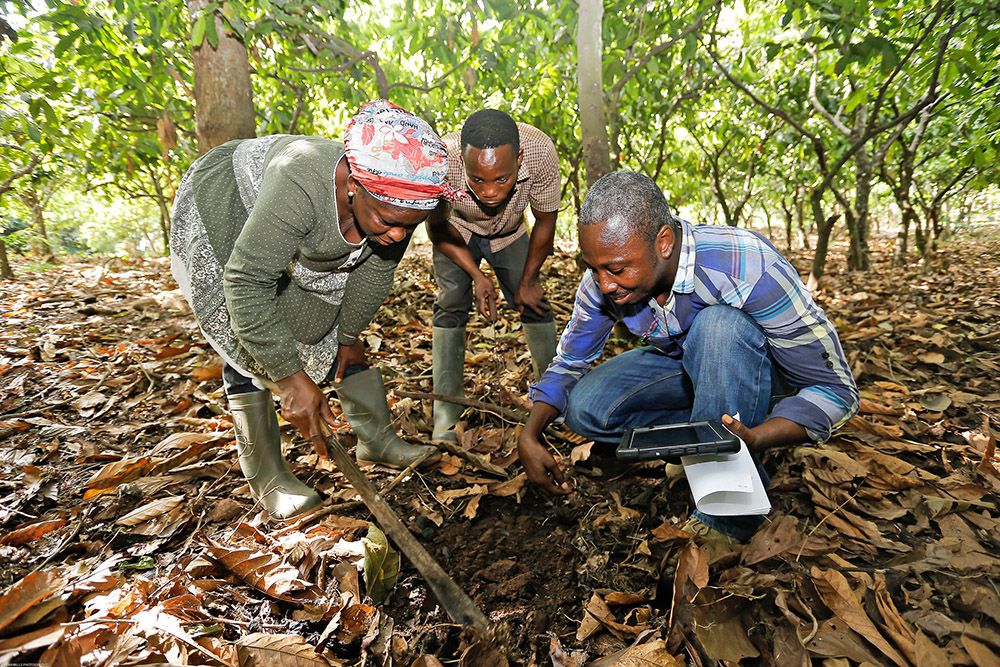
The certification program is part of the Rainforest Alliance’s strategy to drive sustainability at scale in the sectors in which we operate through interconnected interventions supporting certification, tailored supply chain services, landscapes and communities, and advocacy.
Key priorities of our cocoa strategy are assurance, shared responsibility, supply chain transparency, and profitability and resilience.
How we have tailored the implementation and verification of standards requirements on child labor and forced labor to the risk exposure of each farm.
Our shared responsibility approach aims to distribute benefits and costs of certification more evenly between farmers and companies.
Begin your journey of certification with the Rainforest Alliance.
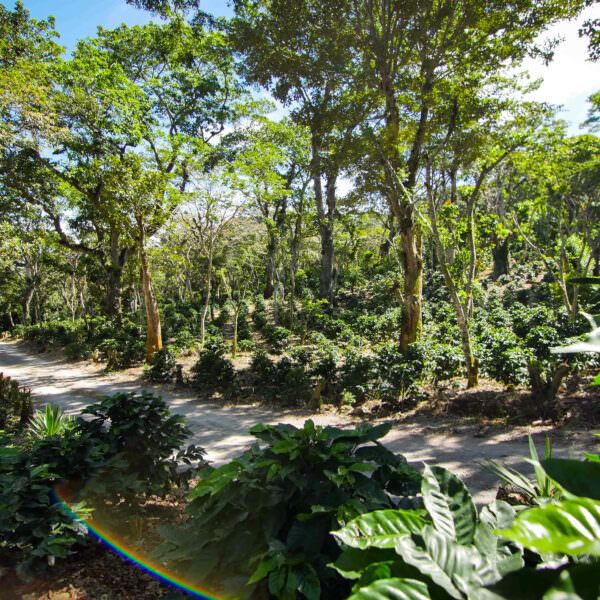
A detailed FAQ about the Rainforest Alliance 2020 Sustainable Agriculture Standard Farm Requirements.
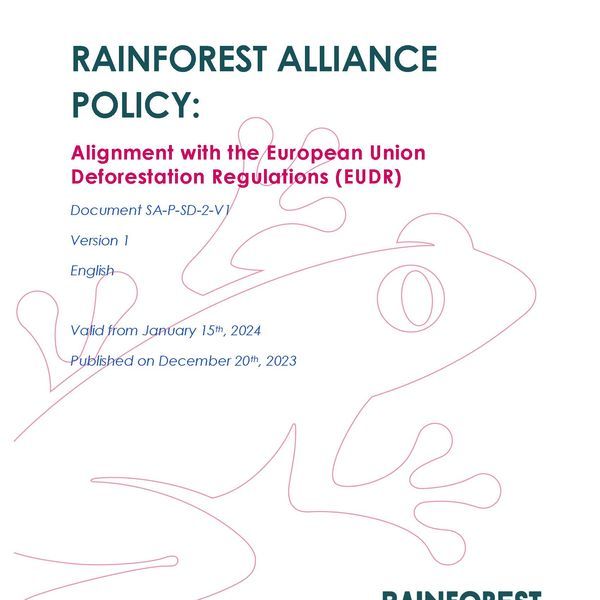
“The European Union (EU) has introduced the EU Deforestation Regulation (EUDR), including requirements on deforestation for some products that are imported into the EU. Rainforest Alliance certified products currently impacted include cocoa and coffee. This document contains additional requirements to cover aspects of the EUDR that were not fully aligned in addition to the RA […]
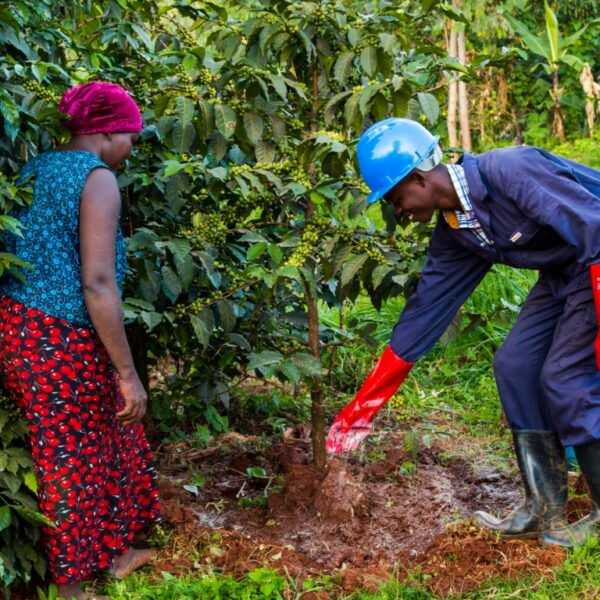
Find out what Ugandan coffee exporter, Kyagalanyi Coffee, had to say about the new program—from the improvements to the challenges.
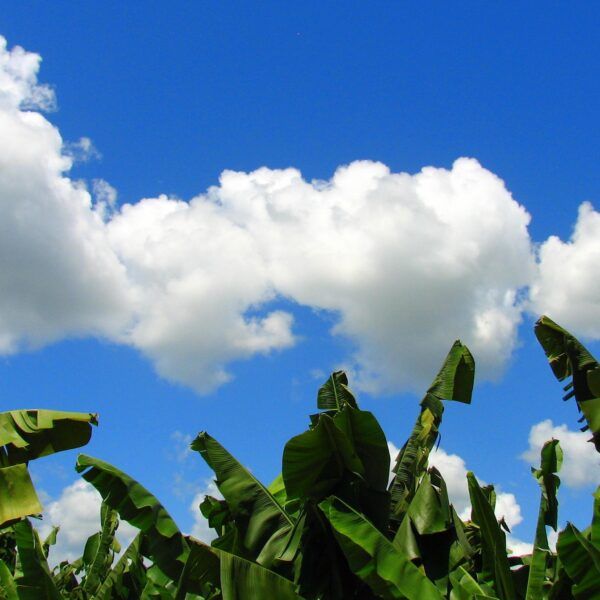
After teaming up for an early implementation pilot of our strengthened certification program, both Finca Esmeralda and the Rainforest Alliance took away learnings that will contribute to a more sustainable banana sector.
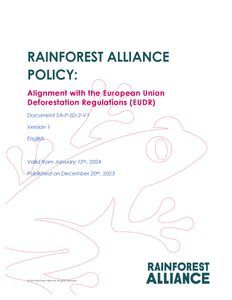
"The European Union (EU) has introduced the EU Deforestation Regulation (EUDR), including requirements on deforestation for some products that are imported into the EU. Rainforest Alliance certified... View more
Available in: English
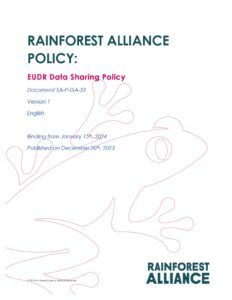
The European Union (EU) has introduced the EU Deforestation Regulation (EUDR), including requirements on deforestation for some products that are imported into the EU. Rainforest Alliance certified... View more
Available in: English
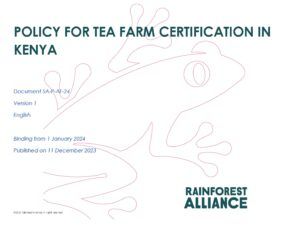
This policy has been developed to align the requirements of the Rainforest Alliance 2020 Farm Standard with the context of Tea farming operations in Kenya. It is applicable to both Rainforest Alliance... View more
Available in: English
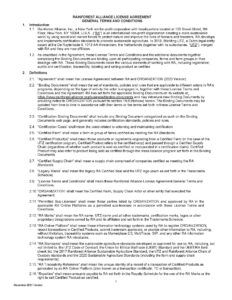
Available in: English
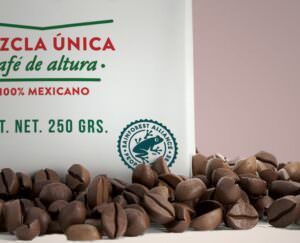
This page gives you an overview of certification costs for farmers and companies.

Biodiversity conservation and the integration of trees in agricultural landscapes are fundamental elements of Regenerative Agriculture. With this guide, we offer practical insights into regenerative... View more
Available in: Spanish
Your gift helps protect vital forest habitats for wildlife.
Support nature’s guardians. Act now.